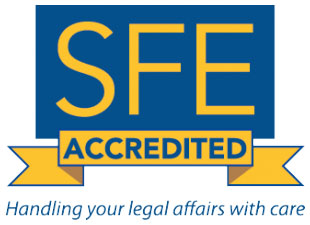People can often be confused as to whether probate (the official proving of a Will) is needed after a person has died. The answer is usually determined by what assets the deceased person owned, the value of those assets and how they were held – i.e., were they in the deceased’s sole name or held jointly with another person?
If it is a “small estate” then usually probate is not required, although there is no set limit to what constitutes a small estate and each bank or financial institution sets their own limits and requirements in that respect, so it is necessary to check with each one. Even if one account is under the limit, some banks/financial institutions will say that if probate is required for any asset in the estate it will need to be produced to them before they will make a payment. Whilst some people may feel frustrated at having to obtain a Grant of Probate – this gives the necessary protection for the banks and also for the persons entitled to inherit under the estate.
Where an asset (often a property) is held in joint names it can either be held as joint tenants or as tenants in common, and this is an important distinction in looking at whether probate is needed.
If assets are held as joint tenants with someone else, it is likely that probate won’t be necessary, regardless of the value of that asset, as it will automatically pass to the surviving owner. This is common with houses, jointly held current bank accounts and sometimes shareholdings too.
However, if say a husband and wife own a property together as tenants in common (in shares), on the first death that person’s share of the property will not automatically transfer into the survivor’s sole name. Instead, it will pass to whoever is legally entitled to inherit under their Will, or by the rules of intestacy if there is no Will.

If the deceased owned a property in their sole name, you will need to go through the probate process in order to sell the property, or transfer it into someone else’s name. The sooner this is done, the easier the process will be. It is not uncommon to come across situations where only on the death of the surviving spouse (usually, the widow) it is discovered that the house had been held in the sole name of her husband and it will then be necessary to obtain probate to both estates - even though his death may have been many years earlier.
For many people who are dealing with a deceased’s estate, further advice, guidance and support is needed and here at Peace Legal our probate solicitor can help you to find out for certain whether or not probate is needed in your circumstances. We offer free initial legal advice on probate matters, so please don’t let any concern as to costs stop you from contacting us either by telephone or email.

Posted on Jan 21, 2021
Back to Latest News
